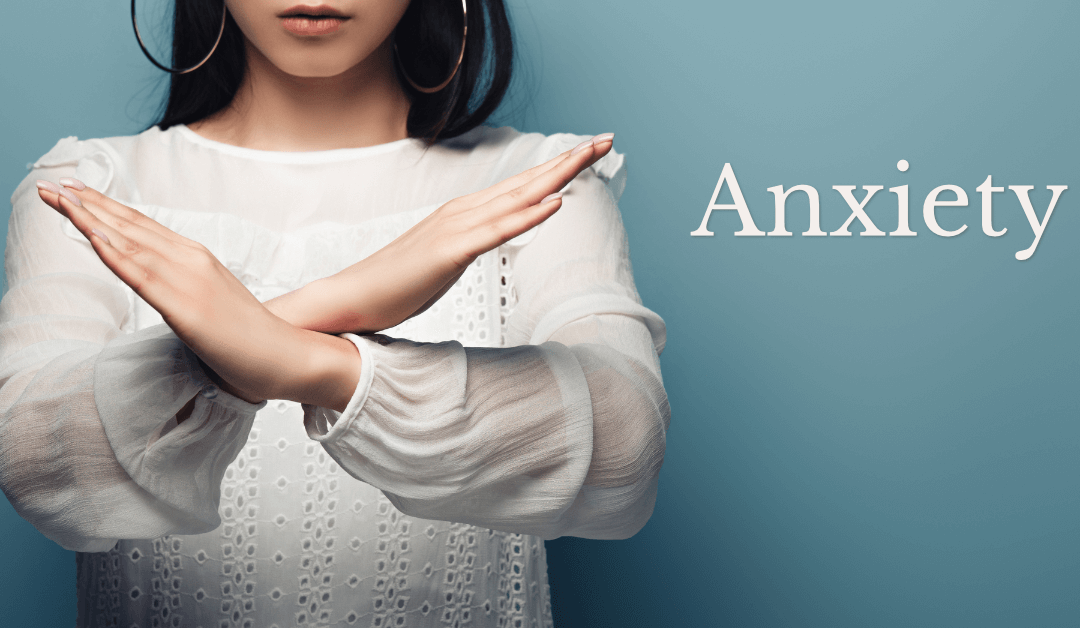In About Anxiety, I explained why and how it can take over your life. To understand anxiety even better, let’s explore what it isn’t. Contrary to common belief, anxiety is not the same as a phobia. It’s neither an illness nor a problem. In fact, thinking of anxiety in these terms is unhelpful because we look or a cure or a one-time solution.
That approach is doomed to fail. Anxiety is a system gone of the rails and the only way to get back on track is to fix the system and learn how to maintain it long-term. Let’s shift these misunderstandings so you can help yourself and others lead a calm life.
Anxiety vs phobia
Arachnophobia: extreme fear of spiders. Agoraphobia: fear of going outside. Ophidiophobia: fear of snakes. A friend of mine has a phobia of things flapping over her head. The list goes on.
Here’s what comes up when I searched for a definition of phobia: “A persistent, abnormal, and irrational fear of a specific thing or situation that compels one to avoid it, despite the awareness and reassurance that it is not dangerous.” (From The American Heritage® Dictionary of the English Language, 5th Edition.) So how is that different from anxiety? Fear is fear, right?
I have a phobia of doctors. As long as I stay away from them, ideally even in a social context, I’m fine! And that’s the difference. A phobia is a very strong fear of something. Yes, the fear is irrational but if you manage to avoid that thing or person you’re scared of you’re fine. Anxiety is general unspecific fear.
Most of us who suffer or have suffered from anxiety still feel a little weird saying out loud “I was just afraid all the time” so we rationalise that fear. We find reasons why we are afraid to soothe ourselves. We might even associate those reasons with things and people and suddenly develop a phobia.
For me, going outside became more difficult every day. Telling myself that I had Agoraphobia was easier than facing the scary notion that fear was taking over my entire life.
But what really happens when we suffer from anxiety is that we are continuously at a high level of fear because emotions accumulate in our bodies. Once we reach that point, anything even remotely scary sends us right over the edge and triggers an anxiety attack. Unlike a phobia, any event, person or thing can cause this reaction, especially if you’ve suffered from anxiety for a while.
Anxiety is not an illness
Depending on which country you live in, anxiety might still be somewhat of a taboo subject. Yes, there are doctors who know how to treat it and there’s more help available. Yes, a lot of people feel much better once they’ve been diagnosed with anxiety because we believe that we can control what we label.
And I am sorry, if you feel insulted by this headline. I do not want to dismiss your anxiety. It is incredibly real and overwhelming. But I had anxiety. I lost seven years of my life falling into a hole and slowly – oh so slowly – crawling my way out of it. One of the reasons why it took me so long is because people talk about it as an illness.
If anxiety is an illness, there has to be a cure. When doctors treat it as an illness they are all too ready to prescribe medication. The internet is riddled with alternative cures. You try them one by one and when they inevitably fail, you move on to the next “cure”, assuming that you’ll find the right one for you eventually. But anxiety is not an illness. Or a problem.

Anxiety is not a problem
If, like me, you lost life-time to anxiety you’ll balk at this headline too, maybe even more than the first one. But it’s this misunderstanding of anxiety that keeps you in your place.
If anxiety were a problem there would be a solution. One solution. So you go out there and try different techniques. Some help for a while but nothing sticks. Eventually, anxiety comes back and you tell yourself that this must be the wrong solution for you, the wrong cure, so you keep on looking and try the next promised miracle.
And that’s the real problem. As long as you think of anxiety as an illness or a problem you keep looking for a cure or a solution. You keep looking for that one thing that will solve anxiety once and for all. And when you find it, you’ll be free forever!
This approach is essentially flawed and traps you in a steady loop of anxiety – latest relieve mechanism – anxiety – latest technique – anxiety – medication – anxiety and so on. You cannot be cured from anxiety because it isn’t an illness. You cannot “solve” anxiety because it isn’t a problem.
Anxiety is a system gone haywire. It consists of two emotions, fear and worry, which are baked into you. This system developed over millennia and it’s brilliant, actually. Unfortunately, it doesn’t work so well with the lives we lead today. And therein lies the rub.
A system gone off the rails
We are exposed to too much fear in our lives. Headlines are specifically designed to scare us. Social media and even the news keep us engaged with terrifying stories from all over the world. The negativity bias in our societies ensures that we stay stuck in constant worry loops because we learn to bond over complaints.
Fear developed to keep us safe in truly dangerous situations that are only supposed to last for a few minutes. The fear response triggers worry, your mind’s brain storming system, to find a solution to your problem at hand.
But because we are awash in fear chemicals all day long, the fear is already so intense that our focus has narrowed and our creative thinking is severly limited. Worry is no longer a creative exercise. Instead, we have worry loops running around our minds all day long, fed again and again by more fear, unable to see a way out.
Then there’s our modern life-style. We sit most of the day so the energy in our cells released by fear has nowhere to go. We return to social media and read those headlines scaring ourselves out of our minds. And we won’t even allow ourselves to cry, actively blocking our in-built release valve.

Getting back on track
Once you understand, though, that anxiety is neither a fear of something nor an illness or a problem, you can focus on decreasing your anxiety levels until they are so low that you don’t even need to use the word any more.
How do you do that? Replace destructive habits one by one with new habits that restore and maintain your emotional system. Practise emotional hygiene every single day. Most importantly, understand and accept that leading an anxiety-free life is a Life Skill: A skill you practise every single day for the rest of your life.
Start today. Pick one (really just one) destructive habit. Doom scrolling at night? Uninstall the social media app from your phone and try a tapping video. Watch the news every morning? Why not go for a short walk instead?
Pick the negative habit that makes you feel the worst and replace it with the easiest emotional hygiene habit you can find. And repeat, repeat, repeat. There is no one-time solution or cure for anxiety but there is a way out. Step by step, bit by bit, day by day.
